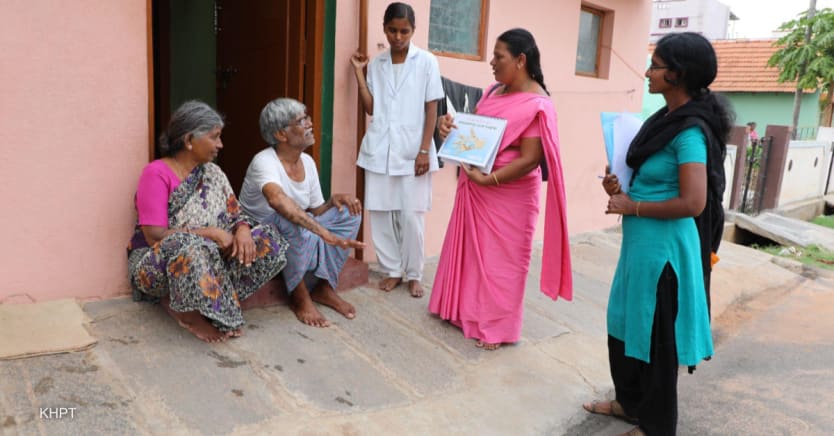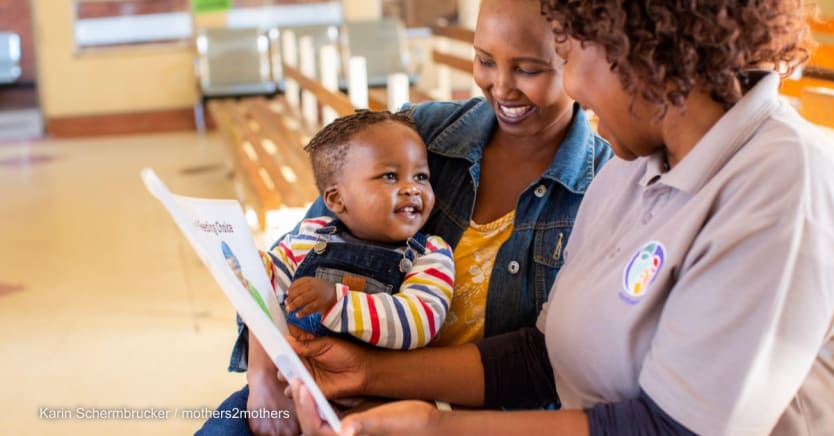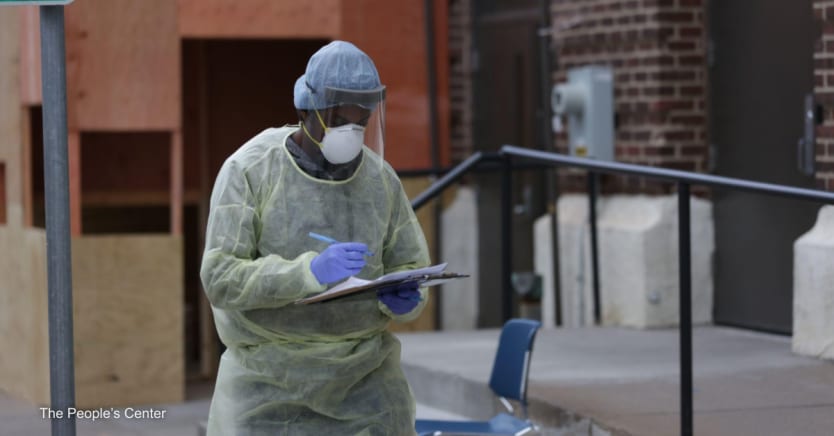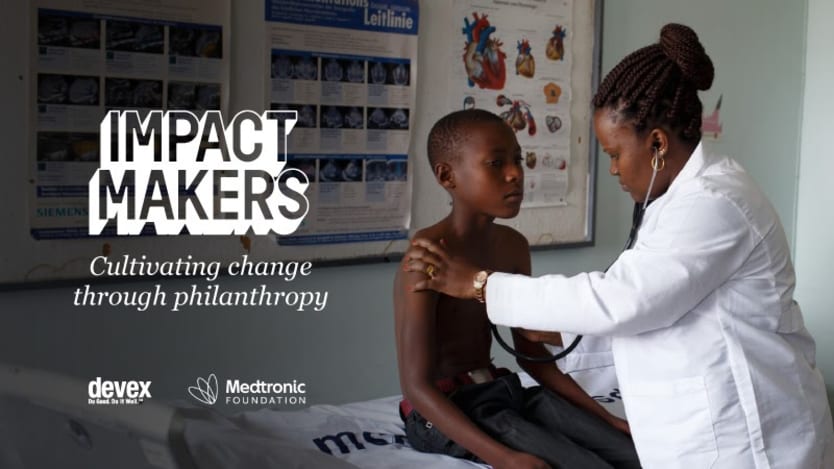
The COVID-19 pandemic has exacerbated the social, economic, and health inequities for underserved communities. Such global vulnerabilities have been further highlighted by the surge of record-breaking cases and deaths currently being seen in India and Latin America.
Now that vaccines have arrived, concerns have been raised about “vaccine nationalism” and the potential for communities to become further marginalized should they struggle to access them. Initiatives such as the United Nations-backed COVAX scheme — which looks to ensure equitable access to vaccines — are moving to redress this balance.
Yet, this alone is not enough. If vaccine equity is to be successful, a connection point built on trust, particularly via trusted messengers, is needed at the community level to ensure education about the safety, efficacy, and benefits of vaccines, according to Jessica Daly, director of global health at the Medtronic Foundation — an organization that partners to improve lives for underserved populations worldwide.
Over 3,500 community health workers work with Medtronic Foundation’s nonprofit partners and community clinics form the core of this effort to link communities with trusted sources of information. Expertise supporting chronic care management, health systems navigation, and emotional well-being for patients in these same underserved regions means CHWs are well-positioned to use their skills and existing relationships to educate, refer, and advocate for the COVID-19 vaccine.
“CHWs are the linkage between community and clinic, and have built the trust that’s required to bridge people into care,” Daly said. “This trust between CHWs and their communities is key to bringing down some of the barriers to vaccine uptake,” she added.
CHWs enable better information and address fears head-on
mothers2mothers is an organization that works to prevent mother-to-child transmission of HIV by providing education, support, and family health services to women across 10 sub-Saharan Africa countries.
Key to m2m’s operations is the “mentor mothers” it employs as front-line health workers. As women living with HIV themselves, mentor mothers draw from their own experience to provide advice on dealing with their condition and accessing care. “It’s about sharing that experience someone has in order to be able to provide support to someone who does not know what the future holds,” said Marjorie Mbule, senior program lead at m2m.
She explained the same ethos can be harnessed for COVID-19 vaccines. The pathway to equitable access is aided by ensuring that every person understands that vaccines are one of the most effective tools to protect their health. This critical information allows people to make an informed choice. Although health workers have not yet received vaccinations in many countries where m2m operates, a growing number of those in South Africa have, Mbule said. As more CHWs get it, they can help dispel fears by showing the vaccine has not had any negative side effects on them, she said.

During the pandemic, m2m also pivoted its usual in-person interactions to phone calls, SMS, and other technology and introduced a mass awareness-raising campaign with educational materials on COVID-19.
The pandemic also accelerated the development of m2m's Virtual Mentor Mother Platform, an interactive chatbot tool that launched last August via WhatsApp. The VMMP service provides smartphone users access to information and service referrals on COVID-19 and other health topics in more than 30 languages, with a staff interface that enables workers to access training and updates.
Though m2m concedes that technology is not the sole solution to improved health care access, such e-services complement its other channels. Mbule said mentor mothers and people’s families have been sharing the information with those who lack easy access to a smartphone or the internet.
“This trust between CHWs and their communities is key to bringing down some of the barriers to vaccine uptake.”
— Jessica Daly, director of global health, Medtronic FoundationShe added that m2m and its partners are watching how vaccine rollout develops to see how they can advocate for it to be “cascaded and decentralized,” while she suggests service delivery systems could look to capitalize on its integration for routine immunization against other diseases. If m2m’s existing army of mentor mothers can seize this opportunity to push for wider access as vaccines ramp up that would be a “very big moment,” Mbule said.
Patient-centered care allows a fast pivot
In India, where cases are reaching over 400,000 per day, CHWs at the Karnataka Health Promotion Trust — an organization that provides patient-centered care focusing on underserved, urban populations for noncommunicable diseases — has been providing communication services during the pandemic via in-person visits when possible, while migrating to telehealth services for virtual visits and consultations during the nationwide lockdown.
Staff have also linked up with partners, established community structures, youth and labor associations, and self-help groups, and distributed cooked meals, grocery kits, and masks to help protect and support the most vulnerable. Such activities have become even more vital as the country battles the deadly surge in cases.
“Adapting to a virtual mode of service delivery was a challenge initially, but with repeated training, they adapted well,” said Swaroop N, thematic lead for comprehensive primary health care at KHPT, adding that CHWs have had to put in a lot of effort to overcome the fear and misconceptions around COVID-19.
One challenge that people in underserved areas have faced, he said, is in registering for vaccines as they have become available. Swaroop said the process in India can be “confusing” — involving accessing a portal, submitting a unique identity number, and registering for two doses, with two different vaccines available. As a result, CHWs have been helping to get them booked, using their smartphones and tablets when people lack access. Alternatively, for people who are having difficulties in registering, the government has provided a walk-in option allowing people to register with their unique identity card and receive the vaccine.
Despite “a lot of hesitancy” about vaccines initially, Swaroop said positive media coverage and high-profile groups, such as politicians, receiving inoculations have resulted in people gaining confidence.
Yet, as the current surge attests, numerous challenges remain including distance to facilities in rural areas, he said. Vaccines should be brought closer to people once cold-chain logistics improve, Swaroop said. Lessons from previous initiatives, such as polio campaigns, can be leveraged.
Lessons from the US vaccine rollout
On top of this, lessons on how to gain public trust when rolling out vaccinations can be learned from other countries, such as the United States, where COVID-19 vaccines have become available at an earlier stage. There, Medtronic Foundation partner and nonprofit health center People’s Center Clinics & Services supports underserved residents in South Minneapolis with hypertension and diabetes, specifically recent east African immigrants and refugees.

During the pandemic, the Center and its CHWs branched out from its usual health care activities to provide COVID-19 and antibody testing, education on the vaccine, and the vaccine itself. Paula Guinn, chief advancement and external relations officer at the Center, said the organization has sought to spread accurate information and dispel fears through the use of partnerships and relationships with trusted sources in the local community.
The road ahead
Initiatives like these are grounded in the work of CHWs, highlighting the vital role they play in linking communities with vital, and sometimes fragmented health services. Recognizing their importance, Medtronic Foundation has provided more than $12 million to support COVID-19 relief initiatives with a focus on training CHWs, ensuring their safety and well-being, and increasing their capacity for providing care while also offering health, economic, and food assistance to vulnerable populations.
Ultimately, what the pandemic has shown is the need to put the community at the core of outreach, added Swaroop. “KHPT’s core strength is strong community connect and this has helped in tackling the crisis,” he said. “This reiterates the importance of our core value of designing and implementing community-based health care models.”
Visit the Impact Makers series for more coverage on how to better cultivate change through philanthropy. You can join the conversation using the hashtag #ImpactMakers.









